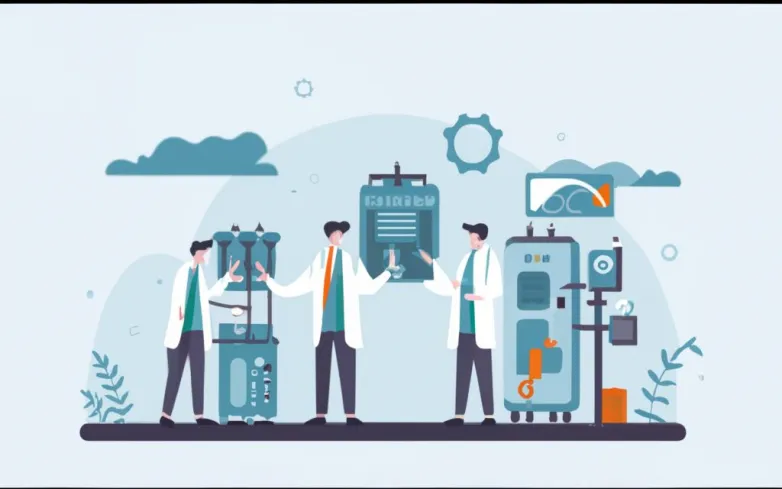Incheon and Harvard Researchers Revolutionize Fuel Cell Durability
- Scientists from Incheon University and Harvard University have developed a fatigue-resistant electrolyte membrane, revolutionizing fuel cell technology for industries beyond transportation.

Scientists from Incheon University in South Korea and Harvard University have developed a fatigue-resistant electrolyte membrane that prolongs the lifespan of fuel cells. The membrane, made of an interpenetrating polymer network of Nafion and perfluoropolyether, addresses the issue of deformation and cracking that electrolyte membranes often face in hydrogen fuel cells. This innovation has the potential to improve fuel cell vehicles and advance technologies in various industries beyond transportation, such as drones, desalination filters, and backup power sources.
Fuel cells contain a polymer electrolyte membrane that conducts protons but inhibits the movement of electrons, hydrogen molecules, and oxygen molecules. The repetitive deformation of the membrane during vehicle operation leads to cracks, causing operational failure. Previous methods to address these cracks have been partially effective but unable to completely prevent their formation and propagation. The new fatigue-resistant electrolyte membrane developed by the research team offers improved durability and lifespan for fuel cells.
Overall, this innovation has the potential to enhance the performance and reliability of fuel cell technology, benefiting various industries and applications beyond transportation.
How have scientists improved the lifespan of fuel cells with a new electrolyte membrane?
- The fatigue-resistant electrolyte membrane developed by scientists from Incheon University and Harvard University is made of an interpenetrating polymer network of Nafion and perfluoropolyether.
- The membrane addresses the issue of deformation and cracking that electrolyte membranes often face in hydrogen fuel cells.
- The repetitive deformation of the membrane during vehicle operation leads to cracks, causing operational failure.
- Previous methods to address these cracks have been partially effective but unable to completely prevent their formation and propagation.
- The new electrolyte membrane offers improved durability and lifespan for fuel cells.
- This innovation has the potential to improve fuel cell vehicles and advance technologies in various industries beyond transportation.
- The improved lifespan of fuel cells can benefit applications such as drones, desalination filters, and backup power sources.
- The membrane allows for better performance and reliability of fuel cell technology.
- The development of a fatigue-resistant electrolyte membrane is a significant step towards enhancing the overall efficiency and viability of fuel cells.
- This advancement can contribute to the widespread adoption of fuel cell technology in various sectors, leading to a more sustainable and clean energy future.
Also read
- CNNP Optoelectronics brings utility-scale perovskite modules out of the lab
- Low-Temperature Sequential Deposition Lifts Inverted Perovskite Solar Cells Efficiency Record
- Self-Assembling Molecule Breakthrough Brings Commercial Perovskite Solar Closer to Market
- Camphor Additives Boost Perovskite Solar Cell Efficiency
- NUS Sets Record With 26.4% Perovskite-Organic Solar Cell
